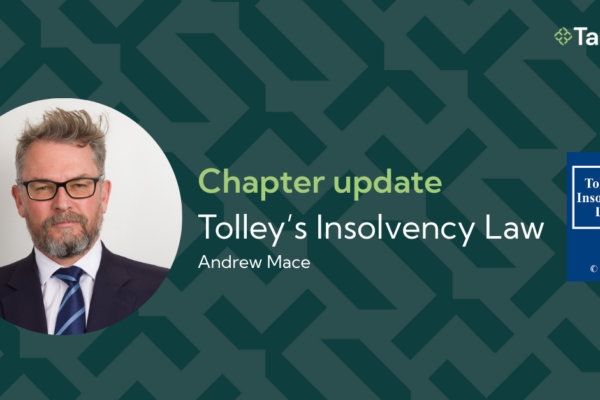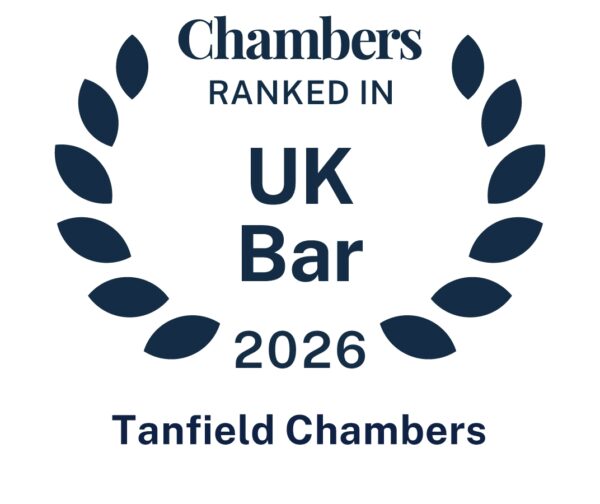Andrew Butler KC commences a short three-part series of articles examining the
Case analysis: Adriatic Land 5 Limited v Long Leaseholders of Hippersley Point [2025] EWCA Civ 856
![Case analysis: Adriatic Land 5 Limited v Long Leaseholders of Hippersley Point [2025] EWCA Civ 856](https://tanfieldchambers.co.uk/wp-content/uploads/2025/07/shutterstock_1952986291-1800x1202-jpg.webp)
Retrospective Service Charge Protection under Schedule 8 of the Building Safety Act 2022
The Court of Appeal has just handed down its decisions in the case of Triathlon Homes LLP v Stratford Village Development Partnership [2025] EWCA Civ [2025] EWCA Civ 846 (“Triathlon”) and in Adriatic Land 5 Limited v Long Leaseholders of Hippersley Point [2025] EWCA Civ 856 (“Hippersley Point”). Both appeals concern the meaning and effect of the Building Safety Act 2022 (the “BSA”).
Triathlon and Hippersley were heard sequentially by an identically constituted Court of Appeal. But they raise distinct issues, and the Court handed down separate judgments.
Background
Hippersley Point is a 10-storey building containing 32 residential flats held on long leases. Adriatic 5 Land Limited (“Adriatic”), the freehold proprietor since 2017, faced significant remedial works due to fire safety defects identified in late 2020. As usual, the leases at Hippersley Point contained service charge provisions that allowed Adriatic to recover the costs of expenditure from the leaseholders. This recovery is restricted by various provisions of the Landlord and Tenant Act 1985 (the “1985 Act“), including s.19 (reasonableness) and s.20 (requirement to consult).
In 2021, Adriatic applied for dispensation from the s.20 consultation requirements to carry out urgent safety works. The First-tier Tribunal (“FTT“) granted dispensation on the condition that Adriatic could not recover the costs of the dispensation application from leaseholders under s.20C of the 1985 Act. On a review of this decision, the FTT removed the s.20C order, but made the granting of dispensation conditional on Adriatic not seeking their costs from the leaseholders (the “Costs Condition”). This was effectively a different route to achieve an identical outcome.
On appeal to the Upper Tribunal (Lands Chamber), Edwin Johnson J held that the FTT was wrong in law to impose the Costs Condition, but that under paragraph 9 of schedule 8 of the BSA, Adriatic could not recover their costs of the dispensation application from qualifying leaseholders. Schedule 8 had only recently come into force on 28 June 2022.
The BSA and Schedule 8
The BSA was enacted in response to the Grenfell Tower tragedy on 14 June 2017. In particular, Part 5 of the BSA (sections 116–112 and schedule 8; the “Remediation Provisions”) provide protections for leaseholders against service charge liabilities for remediation of “relevant defects” in “relevant buildings” (self-contained buildings or parts of buildings with at least two dwellings and over 11 meters or with at least five storeys).
The purpose of the Remediation Provisions was accepted to be fourfold (§147): i) To ensure that historic safety defects were remediated; ii) To protect leaseholders; iii) To ensure that those responsible for the defects were held liable; and, iv) To restore stability to the lending market.
Schedule 8 specifically limits or excludes service charge recoverability for costs related to such defects from qualifying leases, shifting liability primarily to responsible landlords or their associated persons. Paragraph 9 specifically prohibits landlords from recovering service charges for legal or professional services relating to liability incurred due to relevant defects.
Qualifying leases are long leases granted before 14 February 2022 to tenants who use the dwelling as their principal or only home and meet certain ownership criteria.
Issues on Appeal
The appeal raised three main issues:
- Scope Issue: Whether the costs of the dispensation application fall within paragraph 9 of schedule 8.
- Retrospective Construction Issue: Whether paragraph 9 applies to costs incurred before its commencement on 28 June 2022.
- A1P1 Issue: Whether applying paragraph 9 retrospectively would violate Article 1 of Protocol 1 of the European Convention on Human Rights (peaceful enjoyment of possessions) and thus require a compatible construction under the Human Rights Act 1998.
Scope of Paragraph 9
Adriatic argued that paragraph 9 has no application to the costs of a dispensation application under the 1985 Act, on the basis that an application for dispensation does not “relate to” liability for a building safety defect.
This argument was dismissed by Newey LJ (§§44-47), with whom Nugee and Holgate LJJ agreed (§133, §206). The phrase “any person” includes the landlord, and “relating to” is interpreted widely to cover such costs. The purpose of schedule 8 to protect leaseholders from costs associated with relevant defects supported this interpretation.
Retrospective Effect of Paragraph 9
Generally, a statute, even though clearly intended to have retrospective effect, should not be construed as having any greater retrospective operation than is clearly necessary (see e.g. URS Corporation Ltd v BDW Trading Ltd ([2025] UKSC 21, [2025] 2 WLR 1095, at [301]). The question for the Court in Hippersley Point was to what extent paragraph 9 (which is in broadly similar terms to other provisions of schedule 8) was necessarily retrospective.
There were four possibilities before the Court:
- From 28 June 2022, no service charge is payable, and no service charge is to be regarded as ever having been payable [in respect of the relevant costs] (the “Full Retrospective Construction”);
- From 28 June 2022, no service charge is payable [in respect of the relevant costs] whether such services have been provided and billed for, or any service charge demanded or fallen due, before or after 28 June 2022 (the “Payment Construction”);
- From 28 June 2022, no service charge is payable [in respect of the relevant costs] where the liability to pay for the legal or other professional services was incurred on or after 28 June 2022 (the “Incurred Construction”); and,
- From 28 June 2022, no service charge is payable [in respect of the relevant costs] where the service charge falls due on or after 28 June 2022” (the “Prospective Construction”).
The wording of paragraph 9 provided no temporal limitation. The question for the Court was how to interpret that.
The Court agreed that the Full Retrospective Construction was too broad reaching in effect. This construction would enable leaseholders to go back and challenge very historic charges (§184), and the Court held that this would go much further than required to meet the problem which the Remediation Provisions were designed to address (§193).
The effect of the Payment Construction is that any service charges paid before 28 June 2022 are unaffected by the legislation. But from that date no further service charges of the relevant type are payable (§194).
In the minority, Newey LJ held that the Incurred Construction was to be preferred. In his dissenting judgment, Newey LJ pointed to the deprivation of the landlord’s accrued contractual rights without compensation at great cost to the landlord, who – in the case of Adriatic – was not responsible for the defects (§§84-85).
The majority disagreed, preferring the Payment Construction. Nugee LJ noted that a landlord could have entered into contracts for remedying fire safety defects under which it had already incurred millions of pounds of costs; it could have already billed leaseholders, or be in a position to bill them, for £100,000 each. There is nothing on the face of the legislation providing that the protections in schedule 8 are to be deferred until all the costs that had already been incurred, or all the costs that had already been demanded, or fallen due, should have been paid (§199).
Hence, Nugee LJ (with whom Holgate LJ agreed) upheld the Upper Tribunal’s view that paragraph 9 applies from commencement to all costs regardless of when incurred but drew a line in the sand depending on if those costs had already been paid for by 28 June 2022. Their Lordships reasoned that the legislative purpose and scheme require immediate relief for leaseholders and that the statutory language supports this interpretation (§199). While it was acknowledged that this may cause unfairness to landlords this was considered an inevitable consequence of Parliament’s decision to protect leaseholders (§201).
Explanatory Notes
A small, but interesting, aside related to the role of explanatory notes in statutory interpretation. It was held that where notes are published contemporaneously with an act of parliament, they may be of persuasive authority, but they do not enjoy any particular legal status and can be compared with academic writings (§70). Indeed, the Court of Appeal observed that the Supreme Court in BDW had been under a “misapprehension” as to the nature and effect of the very same Explanatory Notes when reaching its judgment (§34).
Human Rights Considerations (A1P1)
Adriatic argued that a retrospective application of paragraph 9 would violate its property rights under Article 1 of Protocol 1 (A1P1) of the European Convention on Human Rights. The Court analysed the proportionality of such interference, considering the legitimate aim of protecting leaseholders and addressing the building safety crisis that arose after the Grenfell tragedy.
The Court found that paragraph 9 effects a “control of use” of property rather than a “deprivation” of property, which in turn meant that it was only a rare case where compensation would be required (R (British American Tobacco UK Ltd) v Secretary of State for Health [2016] EWCA Civ 1182, [2018] QBQ 149 at [113]). In the circumstances, the Court held that the legislation pursued a legitimate public interest with a rational connection to the objectives and falls within the state’s margin of appreciation. Therefore, even if paragraph 9 applied retrospectively, it would not violate A1P1, and the Human Rights Act would not require a compatible reading to avoid retrospectivity.
Conclusion
The Court has found (by a 2-1 majority) that paragraph 9 does have some retrospective effect and covers any relevant costs provided that those service charges had not been paid by 22 June 2022. The same wording appears elsewhere in Schedule 8 and the judgment in Hippersley will apply equally to those provisions. This will have far reaching consequences for landlords, developers and leaseholders alike.
Notably however, following the decision in Triathlon, tenants who have paid service charges in respect of costs incurred in connection with work to remedy relevant defects can apply for remediation contribution orders under s.124 of the BSA. Such an order could be made against, among others, the landlord to whom the service charges had been paid if that were considered “just and equitable”.
Nevertheless, the mere fact of a dissenting judgment will likely lend support to any appeal pursued by Adriatic. Watch this space.
Mark Loveday and Hugh Rowan acted pro bono for the respondent leaseholders in Hippersley Point, instructed by Velitor Law.
This content is provided free of charge for information purposes only. It does not constitute legal advice and should not be relied on as such. No responsibility for the accuracy and/or correctness of the information and commentary set out in the article, or for any consequences of relying on it, is assumed or accepted by any member of Tanfield or by Tanfield as a whole.







